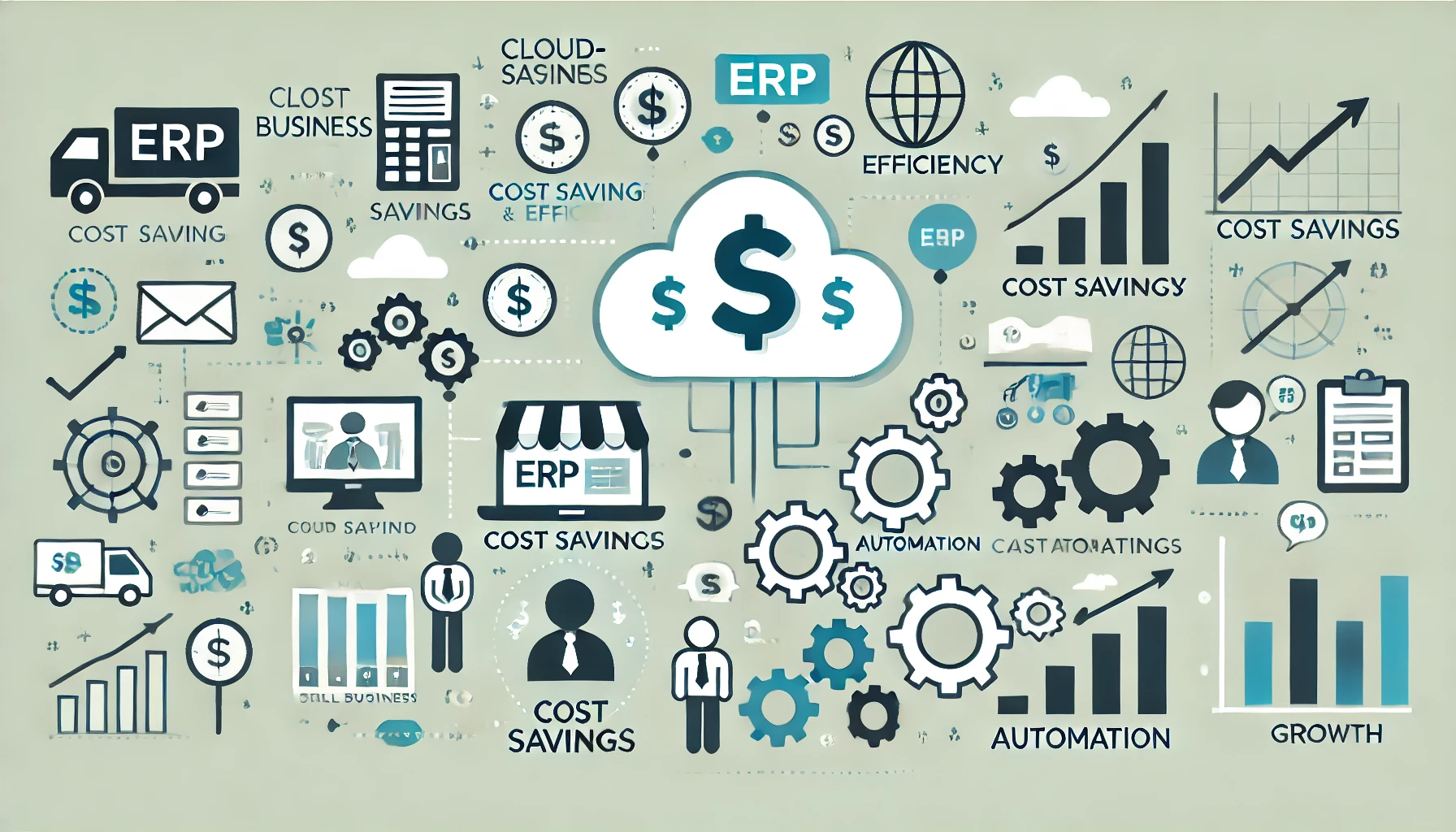For small businesses aiming to grow in today’s competitive market, efficient cost management is essential. NetSuite, a leading cloud-based ERP (Enterprise Resource Planning) system, offers a comprehensive suite of tools designed to streamline operations, improve efficiency, and reduce overhead expenses. By centralizing critical business processes into one unified platform, NetSuite helps small businesses cut costs and focus on what matters most: growth.
In this blog, we’ll explore how NetSuite enables small businesses to reduce costs, optimize resources, and enhance their overall operational efficiency.

Table of Contents
ToggleThe Importance of Cost Management for Small Businesses
Small businesses often operate on tight budgets and limited resources. Managing costs effectively can mean the difference between thriving and merely surviving. Common challenges include high operational expenses, inefficient processes, and the need for advanced technology without overburdening finances.
NetSuite addresses these challenges by providing a scalable, affordable, and efficient solution tailored to small business needs.
Key Ways NetSuite Helps Small Businesses Reduce Costs
- Streamlined Operations
NetSuite integrates core business processes like accounting, inventory management, customer relationship management (CRM), and order processing into a single platform. This eliminates the need for multiple software solutions, reducing licensing fees and administrative overhead.
By consolidating operations, small businesses can:
- Save time by automating manual tasks.
- Minimize errors caused by data duplication.
- Focus resources on strategic decision-making.
- Cloud-Based Infrastructure
NetSuite’s cloud-based model eliminates the need for costly on-premises hardware and IT maintenance. Small businesses no longer have to invest in servers, storage, or dedicated IT staff to manage their systems.
With NetSuite, businesses enjoy:
- Reduced IT costs.
- Automatic updates without additional expenses.
- Enhanced data security without investing in expensive infrastructure.
- Improved Financial Management
NetSuite’s robust financial management tools help small businesses gain real-time visibility into their finances. Features like automated invoicing, expense tracking, and financial reporting reduce administrative costs and improve accuracy.
Benefits include:
- Better cash flow management.
- Faster month-end closing processes.
- Fewer accounting errors that could lead to financial losses.
- Enhanced Inventory Management
For product-based businesses, inventory management is a significant expense. NetSuite’s advanced inventory tracking and demand planning tools help small businesses avoid overstocking or understocking products, both of which can be costly.
With NetSuite, businesses can:
- Optimize inventory levels.
- Reduce storage and carrying costs.
- Avoid lost sales due to stockouts.
- Automation of Manual Tasks
Manual processes such as data entry, order processing, and payroll management can consume time and resources. NetSuite automates these tasks, reducing labor costs and freeing up employees for higher-value activities.
Examples of automation include:
- Generating invoices and purchase orders.
- Managing payroll and employee expenses.
- Automating tax calculations and compliance reporting.
- Scalability Without Additional Costs
As small businesses grow, their operational needs often increase. NetSuite’s scalable architecture allows businesses to expand without investing in new software or hardware.
Features that support scalability include:
- Adding new users or locations easily.
- Integrating additional modules as needed.
- Maintaining consistent costs with flexible pricing models.
- Real-Time Analytics and Reporting
Access to real-time data helps small businesses make informed decisions quickly. NetSuite’s advanced analytics and customizable dashboards provide insights into performance metrics, enabling better cost management.
Benefits of real-time reporting include:
- Identifying areas of waste and inefficiency.
- Monitoring key performance indicators (KPIs).
- Adjusting strategies promptly to avoid unnecessary expenses.
- Better Customer Relationship Management
Retaining customers is more cost-effective than acquiring new ones. NetSuite’s CRM tools enable small businesses to build stronger customer relationships by providing personalized service and timely follow-ups.
Key CRM benefits include:
- Reduced marketing and acquisition costs.
- Increased customer loyalty and repeat business.
- Improved sales efficiency through data-driven insights.
- Enhanced Employee Productivity
By automating repetitive tasks and providing intuitive tools, NetSuite helps employees work more efficiently. Higher productivity translates to lower labor costs and improved overall performance.
Real-Life Example: Small Business Success with NetSuite
Case Study: A small e-commerce business struggled with managing its growing inventory and financial operations. After implementing NetSuite, the company experienced:
- A 30% reduction in operational costs by automating manual tasks.
- A 40% improvement in inventory turnover rates through demand forecasting.
- Faster decision-making thanks to real-time financial reports.
Why Choose NetSuite Over Other ERP Solutions?
NetSuite stands out among ERP systems because of its:
- Comprehensive suite of features tailored to small businesses.
- Affordable cloud-based pricing model.
- Easy integration with existing tools and systems.
- Proven track record of reducing costs and improving efficiency.
Conclusion
NetSuite is a game-changer for small businesses looking to reduce costs and streamline operations. Its cloud-based infrastructure, automation capabilities, and robust financial tools enable businesses to cut expenses, improve efficiency, and focus on growth.
At Suitepedia, we’re dedicated to helping small businesses maximize the potential of ERP solutions like NetSuite. Discover how NetSuite can transform your operations and help you achieve cost savings today.



